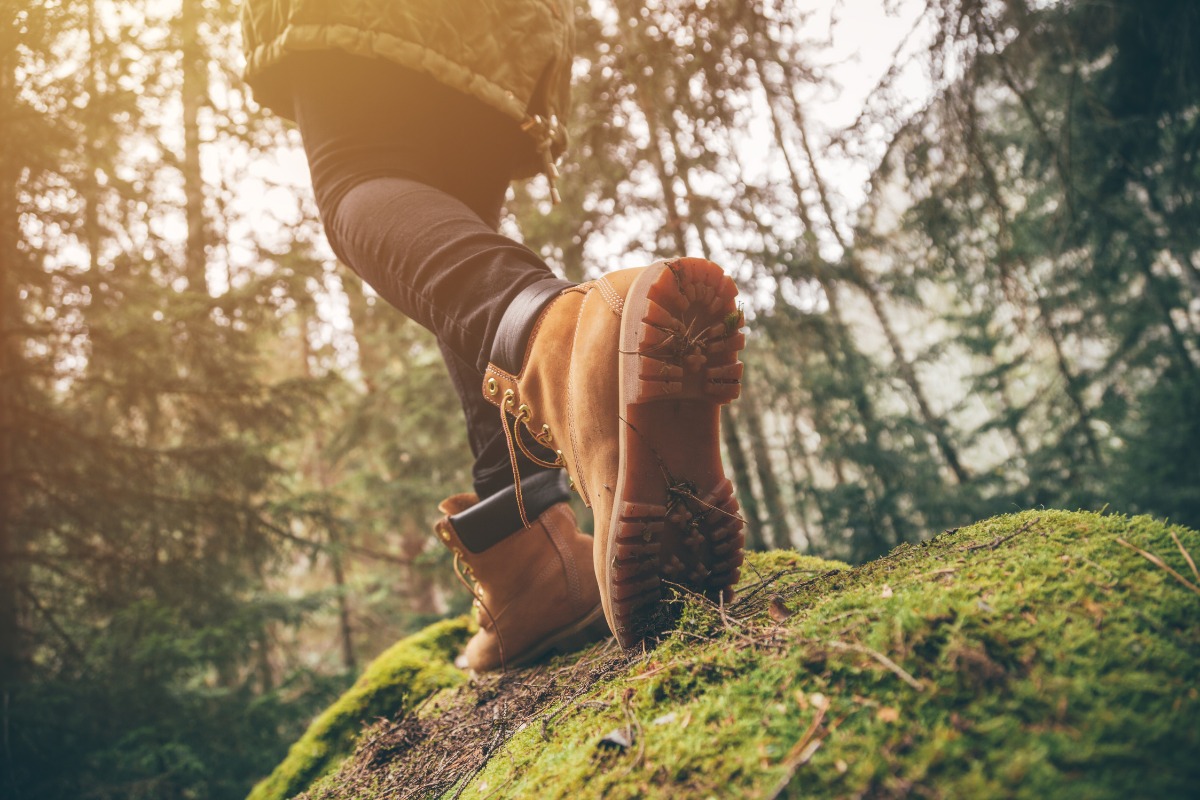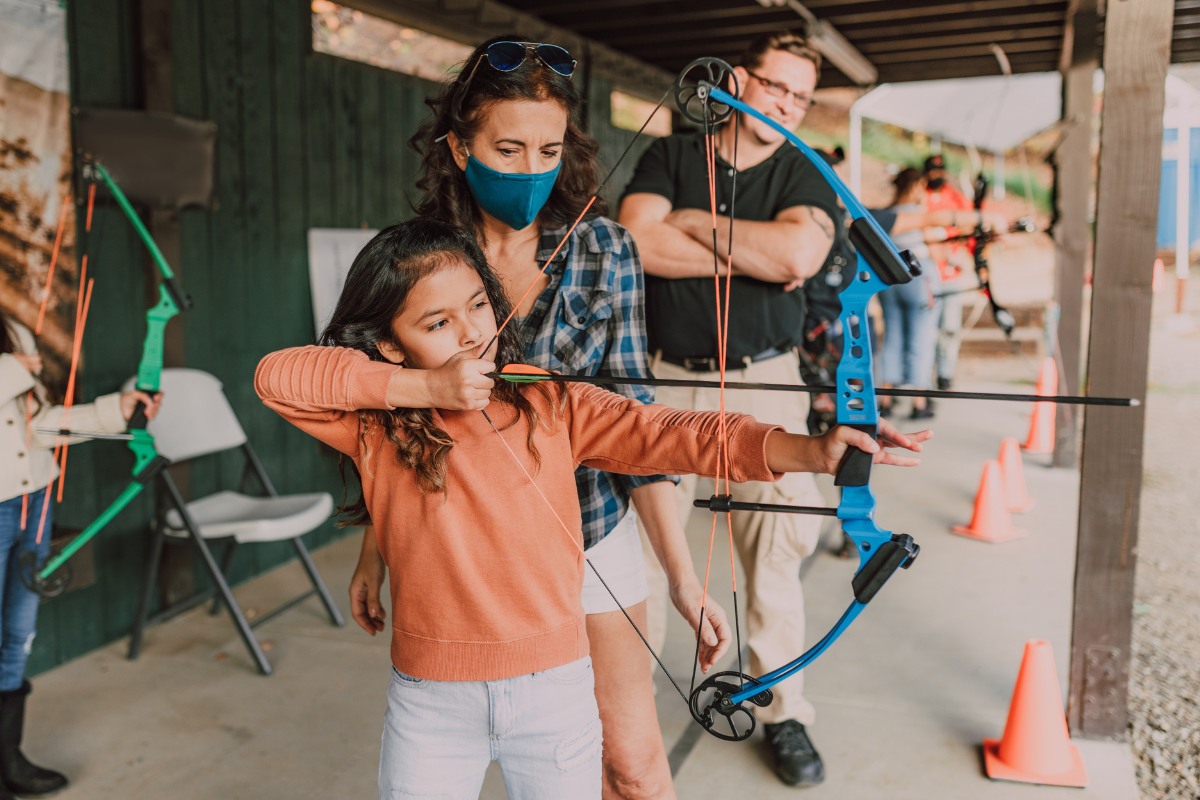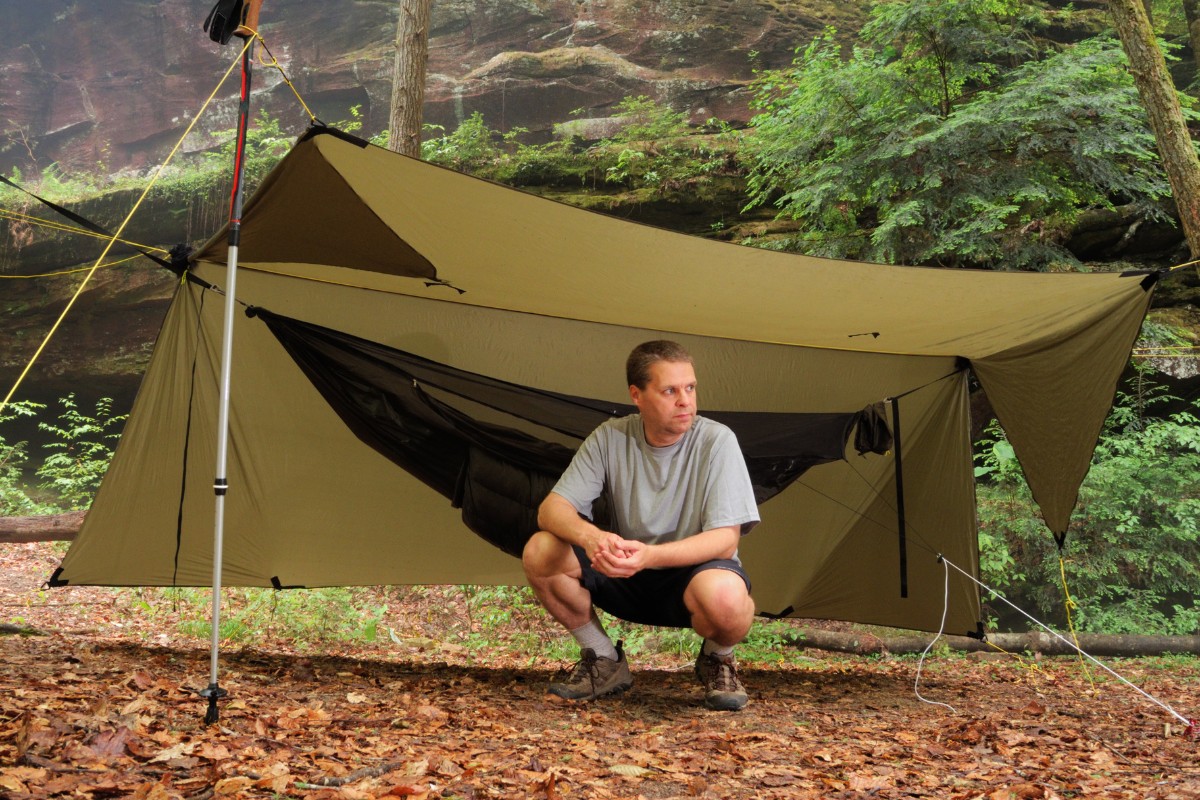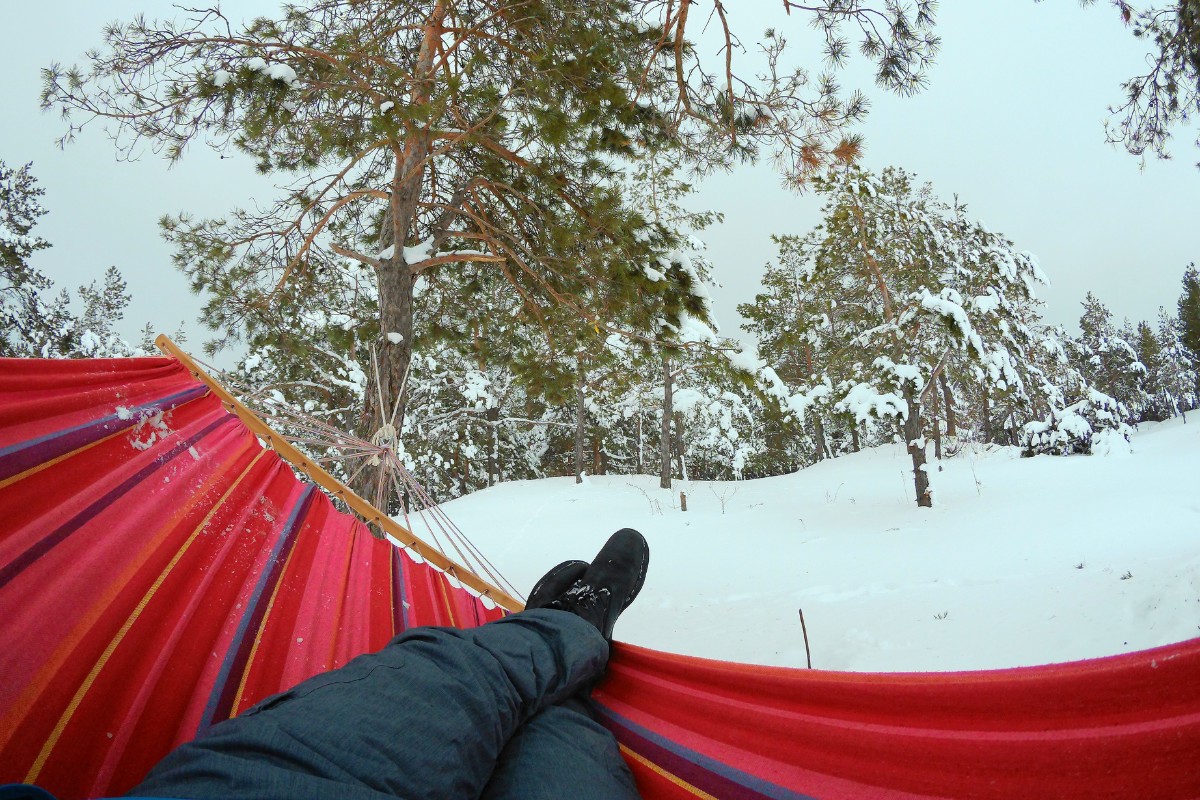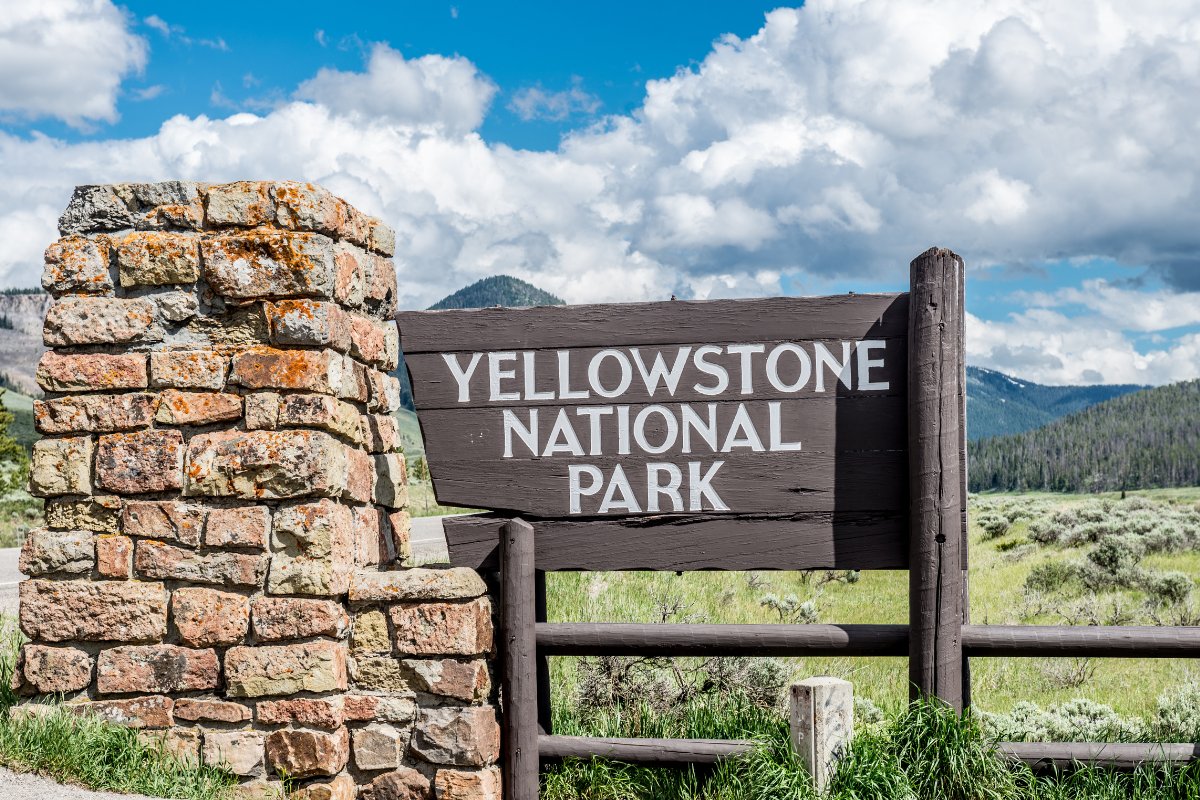Ever felt the pressure to keep up with faster hikers or second-guessed your choices on the trail? You’re not alone. There’s a powerful idea in the hiking world that addresses these concerns: “Hike Your Own Hike” or HYOH. It’s more than just a catchy phrase; it’s a way of thinking that’s caught on like wildfire among outdoor enthusiasts.
HYOH is all about making decisions based on what works for you – your preferences, abilities, and goals – rather than trying to meet someone else’s expectations. It’s about finding your own path, both on the trail and off.
What is Hike Your Own Hike
HYOH isn’t just a modern catchphrase; it’s an idea that resonates with the very essence of hiking. While we can’t pinpoint exactly when the term was coined, it gained traction among hikers on the Appalachian Trail, probably sometime in the 1980s or earlier.
But the spirit of HYOH? That’s as old as hiking itself. As one hiker put it, “Native Americans surely had a similar saying in their languages 5,000 years ago.” It speaks to our basic human desire for freedom and self-determination. When we’re out on the trail, we’re not just walking; we’re choosing our own adventure.
What HYOH Really Means
At its core, HYOH is about three main ideas:
First, it’s about hiking in a way that brings you joy. That might mean pushing yourself to cover long distances, or it might mean taking it slow and soaking in every detail of the landscape. There’s no right or wrong way – just your way.
Second, HYOH encourages us to stop measuring ourselves against others. Your journey is unique, and success is whatever you define it to be. Maybe for you, success is reaching the summit. Or maybe it’s simply spending time in nature, regardless of how far you go.
Lastly, HYOH reminds us to respect others’ choices. While the hiking community is known for its helpfulness and camaraderie, HYOH underscores the importance of allowing each person to make their own decisions about their hike.
HYOH in Action
So what does HYOH look like in practice? It’s as varied as hikers themselves. On the Appalachian Trail, you might see one hiker covering 50 kilometers a day, aiming to finish the trail in three months. Right alongside them, another hiker might be taking a leisurely pace of 10 kilometers a day, planning to spend a full year on the trail. Both are valid approaches under HYOH.
It extends to gear choices too. Some swear by ultralight setups, while others prefer the comfort of a heavier pack. HYOH says both are okay, as long as it works for you.
But here’s where it gets really interesting: HYOH isn’t just for the trail. Many hikers find that this philosophy seeps into their everyday lives. It becomes a guidepost for making authentic choices in careers, relationships, and lifestyle decisions. Instead of following the beaten path of societal expectations, HYOH encourages us to forge our own way, aligned with our personal values and desires.
HYOH in Different Hiking Scenarios
One of the beautiful things about HYOH is how versatile it is. Whether you’re hiking solo, with a partner, or in a group, HYOH can enhance your experience. Let’s explore how to put HYOH into practice in different hiking scenarios.
Solo Hiking: The Ultimate HYOH Experience
Solo hiking is perhaps the purest form of HYOH. When you’re out there on your own, you have complete freedom to choose your pace, schedule, and route. There’s no need to compromise or consult with others. This autonomy can lead to a profound connection with nature and yourself.
One solo hiker described their experience this way: “When I hike solo, I can set my own pace, choose my own path, and experience the peace and tranquility of the outdoors without the distractions of conversation or the need to accommodate the preferences of others.”
But solo hiking isn’t all sunshine and rainbows. It comes with its own set of challenges. Safety is a big one – you’re solely responsible for navigation, decision-making, and handling any emergencies that might pop up. Plus, you’ve got to carry all your gear yourself, which can be physically demanding.
If you’re thinking about solo hiking, here are some tips to help you HYOH responsibly:
- Do your homework. Research your route thoroughly and prepare accordingly.
- Let someone know your plans, including when you expect to return.
- Pack essential safety gear, including a first aid kit and a way to call for help if needed.
- Trust your gut. If something doesn’t feel right, it’s okay to change your plans or turn back.
- Be prepared for solitude. Some hikers find extended periods alone challenging, so know yourself and plan accordingly.
Couple/Pair Hiking: HYOH as a Team
Hiking with a partner introduces a new dynamic to HYOH. It’s all about finding that sweet spot between individual preferences and shared experiences. The key? Clear communication and mutual respect.
Before you hit the trail, have a chat about ground rules. Some things to discuss might include:
- How close you’ll stay to each other on the trail.
- Where and when you’ll meet up if you’re not walking together.
- How you’ll make decisions if there’s confusion about the trail or if you get lost.
- How you’ll handle differences in pace or endurance.
One hiker shared their approach: “When Gill and I hike, we have a rule that we need to be in sight of each other, so this distance will vary depending on the terrain.”
Hiking as a pair has its perks. You get to share experiences, support each other, and split the weight of gear. But it can also be challenging if your hiking styles or preferences differ significantly.
To make HYOH work in a pair:
- Have an open conversation about your individual goals and expectations for the hike.
- Be willing to compromise. Maybe you alternate between each person’s preferred pace on different days.
- Respect each other’s need for personal space or solo time on the trail.
- Celebrate your shared experiences while also acknowledging individual achievements.
Group Hiking: HYOH in a Crowd
Applying HYOH in a group setting can be tricky, but it’s definitely doable. The key is to balance individual preferences with group cohesion and safety.
When hiking in a group:
- Have a pre-trip discussion about everyone’s expectations, fitness levels, and goals.
- Agree on a general pace and daily mileage that works for all group members.
- Consider splitting into smaller sub-groups based on pace or interests for parts of the day.
- Take turns with roles like navigation and setting the pace.
- Respect individual choices about gear, as long as they don’t compromise group safety.
One experienced hiker noted, “The bigger the group, the slower the pace. Generalization I know, but anecdotally this is the way it works.” Keep this in mind and adjust your expectations accordingly.
Group hiking can be great for safety, shared gear, and diverse social interactions. But it can also lead to challenges in decision-making and may limit individual flexibility.
To apply HYOH responsibly in a group:
- Communicate your needs and preferences clearly to the group.
- Be willing to compromise for the sake of group harmony and safety.
- Respect others’ choices, even if they differ from your own.
- Take responsibility for your own preparation and safety, while also looking out for the group.
Adapting HYOH Across Different Hiking Styles
As you move between solo, pair, and group hiking experiences, it’s important to stay flexible and open-minded. Each style offers unique benefits and challenges, and how you apply HYOH may look different in each context.
Remember, your “why” – your reason for hiking – may change over time or differ depending on the trip. As one hiker reflected, “Sometimes hiking your own hike is not what you expect it to be and making the decision to do so can be tough, especially when those decisions impact other people.”
The Upsides of Hiking Your Own Hike
Embracing HYOH can transform your hiking experience and even spill over into your everyday life. Let’s break down some of the benefits you might experience when you start to hike your own hike.
Personal Growth and Connection
One of the most profound benefits of HYOH is how it can deepen your connection with nature. When you’re not worried about keeping pace with others or meeting external expectations, you’re free to truly immerse yourself in your surroundings. As one hiker beautifully described it, “I feel it in my bones when I feel one with nature. Animals don’t see me as a threat, and they continue living their life.” It’s in these moments of connection that many hikers find a sense of peace and belonging that’s hard to come by in our busy, modern lives.
HYOH can also turn your hike from a physical challenge into a journey of self-discovery. When you’re making choices based on your own preferences and goals, you learn a lot about yourself in the process. What pace feels right for your body? What kind of scenery speaks to your soul? These insights can be incredibly valuable, both on and off the trail.
Take it from a couple who hiked the Appalachian Trail: “Life on the trail was much simpler, more spontaneous and a wonderful time for introspection… The good times outweighed the bad 100 to 1.” This kind of experience can be transformative, helping you gain clarity about what truly matters to you.
Physical and Mental Well-being
HYOH isn’t just good for the soul; it can be great for your body and mind too. By respecting your own pace and preferences, you’re less likely to push yourself to the point of injury or burnout. You’re also more likely to choose gear that truly works for you, rather than what’s trendy or recommended by others.
Perhaps one of the biggest benefits is the reduction in stress and pressure. When you stop comparing yourself to others or trying to meet external expectations, hiking becomes more relaxing and enjoyable. You’re free to fully immerse yourself in the natural environment and your own thoughts.
Research has shown that hiking, in general, offers numerous health benefits, from improved cognitive function to reduced symptoms of anxiety and depression. When you combine these benefits with the HYOH philosophy, you create a personalized experience that can amplify these positive effects.
Building a Supportive Community
While HYOH is about individual choice, it paradoxically can lead to a more supportive and inclusive hiking community. When hikers respect each other’s right to HYOH, it fosters positive interactions on the trail. One hiker shared their experience: “As people pass by when I am taking a long break, we’re waving to one another. Some say hi, some ask me questions for help, and sometimes ask why I am so happy and start a conversation.”
This mutual respect for individual choices can make the hiking community more welcoming to a diverse range of people. When everyone feels free to hike their own hike without judgment, it encourages more people to get out and enjoy the trails. And this diversity of experiences and perspectives? It only enriches the hiking community as a whole.
Bringing HYOH Home
One of the most exciting aspects of HYOH is how it can translate into everyday life. Just as HYOH encourages you to make authentic choices on the trail, it can guide you in making decisions off the trail that align with your true self.
Applying HYOH in daily life often leads to increased self-awareness and personal growth. It pushes you to reflect on what you really want, rather than just going along with what others expect. This can lead to more fulfilling career choices, healthier relationships, and a greater sense of overall life satisfaction.
Moreover, the HYOH philosophy can help you develop resilience and adaptability. Just as hikers learn to adjust their plans based on trail conditions or personal needs, applying HYOH in everyday life can help you navigate life’s challenges with greater flexibility and self-assurance.
The Limits of HYOH: Hiking Responsibly
While HYOH is a fantastic philosophy that can enhance your hiking experience, it’s not a free pass to do whatever you want on the trail. There are limits to HYOH, and it’s crucial to understand and respect these boundaries for your own safety and the well-being of others and the environment.
Understanding Where HYOH Stops
HYOH is great for personal decision-making, but it doesn’t override the need for proper skills, preparation, and safety measures. As one experienced hiker and guide pointed out, “HYOH is a healthy attitude to have about the wide-ranging trip objectives that backpackers have. But on the issue of tactics or methods in achieving those objectives, HYOH’s inclusivity reaches its limit.”
In other words, while HYOH supports diverse hiking goals and styles, it doesn’t justify poor preparation or unsafe practices. There are indeed “right ways” to backpack when it comes to essential skills and safety measures. Just like there are correct techniques for driving a car or playing a musical instrument, there are proper methods for navigation, camp setup, and wilderness safety that shouldn’t be ignored in the name of “hiking your own hike.”
For example, HYOH doesn’t mean you can ignore proper gear selection for the conditions you’ll face. If you’re hiking in bear country, carrying bear spray isn’t a personal choice – it’s a necessary safety measure. Similarly, if you’re hiking in alpine areas, having appropriate cold-weather gear isn’t optional, regardless of personal preferences.
Putting HYOH into Practice Responsibly
Applying HYOH responsibly means finding a balance between personal freedom and respect for others and the environment. Here are some key things to keep in mind:
Respect for Fellow Hikers
Your HYOH shouldn’t negatively impact others’ experiences. Playing loud music on the trail or leaving a messy campsite goes against the spirit of HYOH because it infringes on others’ ability to enjoy their hike.
Environmental Stewardship
HYOH doesn’t give you a pass to ignore Leave No Trace principles or park regulations. As responsible hikers, we should always aim to minimize our impact on the environment, regardless of our personal preferences.
Safety First
While HYOH encourages personal choice, it doesn’t override basic safety practices. Always inform someone of your plans, carry essential safety gear, and be prepared for the conditions you’ll face.
Skill Development
Use HYOH as motivation to learn and improve your outdoor skills, not as an excuse for lack of preparation. Invest time in learning proper backpacking techniques, navigation skills, and wilderness first aid.
Stay Flexible
Be prepared to adjust your plans if conditions change or if your chosen path puts you or others at risk. True HYOH includes the wisdom to know when to alter course.
The Ethics of HYOH
The HYOH philosophy, when misapplied, can sometimes lead to ethical dilemmas within the hiking community. It’s important to consider the broader implications of our choices on the trail.
One hiker and writer pointed out, “Hiking becomes more popular every year, fueled in large part by social media. Social media gives everybody a platform to demonstrate their activities and attitudes, which can inspire others to follow suit.”
This observation raises an important question: If we see behavior that sets a bad example or potentially harms the environment, does “minding our own business” (a tenet of HYOH) mean we should stay silent? Or do we have a responsibility to the broader hiking community and the environment to speak up?
The answer lies in finding a balance. While HYOH encourages respect for individual choices, it doesn’t mean we can’t respectfully educate or intervene when safety or environmental protection is at stake. The hiking community relies on shared ethical principles and social norms to protect both hikers and the natural spaces we enjoy.
Responsible application of HYOH can actually contribute to a positive hiking culture and environmental stewardship. By modeling good practices, sharing knowledge respectfully, and being mindful of our impact, we can inspire others to do the same.
Practical Tips for Your HYOH Journey
Now that we’ve explored the philosophy of HYOH and its implications, let’s get down to the nitty-gritty. How can you put HYOH into practice in a way that’s responsible and enriching? Here are some practical tips to help you on your way.
Getting Ready: Personal Preparation
Know Your Limits
Understanding what your body can handle is crucial. As one hiker put it, “I know how much my body can handle. When other hikers or people push me to go further, I know what’s in my limits.” Regular exercise and gradually increasing your hiking distances can help you build endurance and understand your capabilities.
Choose Gear That Works for You
Don’t just go for what’s popular or what your hiking buddy uses. Take the time to get properly fitted for crucial items like backpacks and shoes. One hiker shared, “I spent forty-five minutes working with an outfitter who fit me for shoes. He even showed me the best way to tie them so they weren’t coming undone every other mile on the trail.” Your feet will thank you!
Build Your Skills
Invest time in learning essential backpacking skills. There are tons of resources out there – online tutorials, books, and expert advice. Consider taking a wilderness first aid course or attending a backpacking clinic. Remember, HYOH is about making informed choices, not justifying a lack of preparation.
Prepare Mentally
HYOH often involves solo hiking or making independent decisions. Get ready for the solitude and challenges you might face. Some hikers find practices like mindfulness or meditation helpful for staying calm and focused on the trail.
Planning Your Trip and Staying Safe
Do Your Homework
Before you set out, study your route, understand the terrain, and check recent trail conditions. Know the rules for the areas you’ll be hiking, including permit requirements and camping restrictions.
Plan For the Unexpected
Create a detailed trip plan that includes alternate routes and bail-out points. Share this plan with someone you trust who’s not on the trip.
Pack the Essentials
Always carry the Ten Essentials, regardless of your hiking style or trip length. These include navigation tools, sun protection, insulation, illumination, first-aid supplies, fire starter, repair kit and tools, nutrition, hydration, and emergency shelter.
Keep an Eye on the Weather
Check forecasts before and during your trip. Be ready to change your plans if conditions become unsafe.
Stay Connected
Carry a reliable communication device, especially for remote hikes. Set up check-in times with your emergency contact.
On the Trail: HYOH in Action
Find Your Rhythm
Hike at a pace that feels good to you, even if it means separating from faster or slower companions. Remember, it’s not a race, and steady progress often leads to more enjoyable experiences.
Listen to Your Body
Take breaks when you need them, stay hydrated, and fuel your body regularly. Don’t push beyond your limits just to keep up with others or reach an arbitrary goal.
Be Flexible
Weather, trail conditions, or personal factors might necessitate changes to your plan. Embrace this flexibility as part of your HYOH journey.
Show Respect
While focusing on your own hike, be considerate of other trail users. Yield the trail when appropriate, keep noise levels down, and be friendly to fellow hikers.
Leave No Trace
Follow Leave No Trace principles to minimize your impact on the environment. This includes packing out all trash, staying on designated trails, and respecting wildlife.
Caring for the Environment
Choose Sustainable Gear
When possible, opt for gear made from recycled materials or produced by companies with strong environmental ethics.
Be Fire-Wise
Use established fire rings where allowed, keep fires small, and fully extinguish them. Better yet, consider using a backpacking stove instead of a campfire.
Protect Water Sources
Camp at least 200 feet away from lakes and streams. Use biodegradable soap and scatter dishwater away from water sources.
Respect Wildlife
Store food properly to avoid attracting animals. Observe wildlife from a distance without feeding or approaching them.
Educate Yourself
Learn about the ecosystems you’re hiking through. Understanding the environment can help you make more informed decisions about how to protect it.
Give Back
Consider participating in trail maintenance or conservation projects. It’s a great way to contribute to the trails you love and connect with like-minded hikers.
Remember, hiking your own hike isn’t just about personal freedom – it’s about making informed, responsible choices that enhance your experience while respecting the natural world and your fellow hikers.
Whether you’re planning a solo trek through remote wilderness or joining a group hike in your local park, HYOH empowers you to make choices that align with your goals, values, and abilities. So lace up your boots, hit the trail, and hike your own hike – responsibly and joyfully. The path you choose is uniquely yours, and that’s what makes it beautiful.
